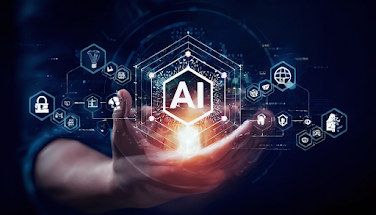The Future of Artificial Intelligence: How AI is Transforming the World
Artificial Intelligence (AI) is no longer a concept of the future—it’s shaping our present and redefining industries, businesses, and everyday life. From self-driving cars to intelligent chatbots, AI is evolving at an unprecedented pace, bringing both opportunities and challenges. In this article, we’ll explore how AI is transforming the world, its potential impact on jobs, ethical concerns, and what the future holds for this groundbreaking technology.
1. Understanding Artificial Intelligence
AI refers to computer systems that can perform tasks that typically require human intelligence. These tasks include problem-solving, decision-making, language understanding, and even creative work. AI is powered by machine learning (ML), deep learning, and neural networks, enabling it to learn from data and improve over time.
There are two main types of AI:
- Narrow AI (Weak AI): Designed for specific tasks like voice assistants (Siri, Alexa) and recommendation systems (Netflix, Amazon).
- General AI (Strong AI): A more advanced form of AI that can perform any intellectual task a human can—though this remains theoretical for now.
2. AI’s Impact on Industries
AI is revolutionizing nearly every sector. Here’s how:
Healthcare
- AI-powered diagnostics can detect diseases like cancer at an early stage.
- Robotic surgeries increase precision and reduce recovery time.
- AI chatbots provide instant medical advice, improving patient care.
Finance
- AI algorithms predict market trends, helping investors make smarter decisions.
- Fraud detection systems use AI to identify suspicious transactions.
- Chatbots and virtual assistants enhance customer service in banking.
Education
- AI-driven personalized learning adapts to students' individual needs.
- Automated grading systems save time for teachers.
- AI tutors provide 24/7 assistance to students worldwide.
Transportation
- Self-driving cars promise safer roads and reduced traffic congestion.
- AI optimizes logistics, making deliveries faster and more efficient.
- Smart traffic management systems reduce accidents and improve city planning.
Entertainment & Media
- AI-generated content, including music and art, is pushing creative boundaries.
- Streaming platforms use AI to personalize recommendations.
- AI deepfake technology raises ethical concerns about misinformation.
3. The Impact of AI on Jobs
One of the biggest concerns about AI is its effect on employment. While AI is automating repetitive tasks, it’s also creating new opportunities.
- Jobs at risk: Roles in manufacturing, customer service, and data entry are being replaced by AI-driven automation.
- New jobs emerging: AI specialists, data scientists, and AI ethicists are in high demand.
- The need for upskilling: Workers will need to adapt by learning AI-related skills to stay competitive in the job market.
4. Ethical Concerns & AI Risks
As AI advances, ethical dilemmas arise:
- Bias in AI: AI can inherit biases from the data it’s trained on, leading to unfair outcomes.
- Privacy issues: AI-powered surveillance and data collection raise concerns about personal privacy.
- Job displacement: The rapid adoption of AI could lead to economic inequality if workers are not reskilled.
- AI in warfare: Autonomous weapons powered by AI pose significant security risks.
To ensure AI is used responsibly, companies and governments must establish clear ethical guidelines and regulations.
5. The Future of AI: What’s Next?
The future of AI is both exciting and uncertain. Here are some key developments to watch:
- Artificial General Intelligence (AGI): Scientists are working towards AI that can think, learn, and reason like humans.
- AI-human collaboration: Instead of replacing humans, AI will assist professionals in making better decisions.
- Smarter AI regulations: Governments will implement stricter policies to ensure ethical AI development.
- AI in space exploration: AI is already assisting NASA and SpaceX in navigating the cosmos.
Conclusion
AI is a transformative force that is reshaping industries, economies, and daily life. While it presents incredible opportunities, it also comes with risks that need to be managed. As AI continues to evolve, society must find ways to harness its power responsibly, ensuring that it benefits humanity as a whole.
Are we ready for the AI-driven future? Only time will tell.





0 comments:
Post a Comment